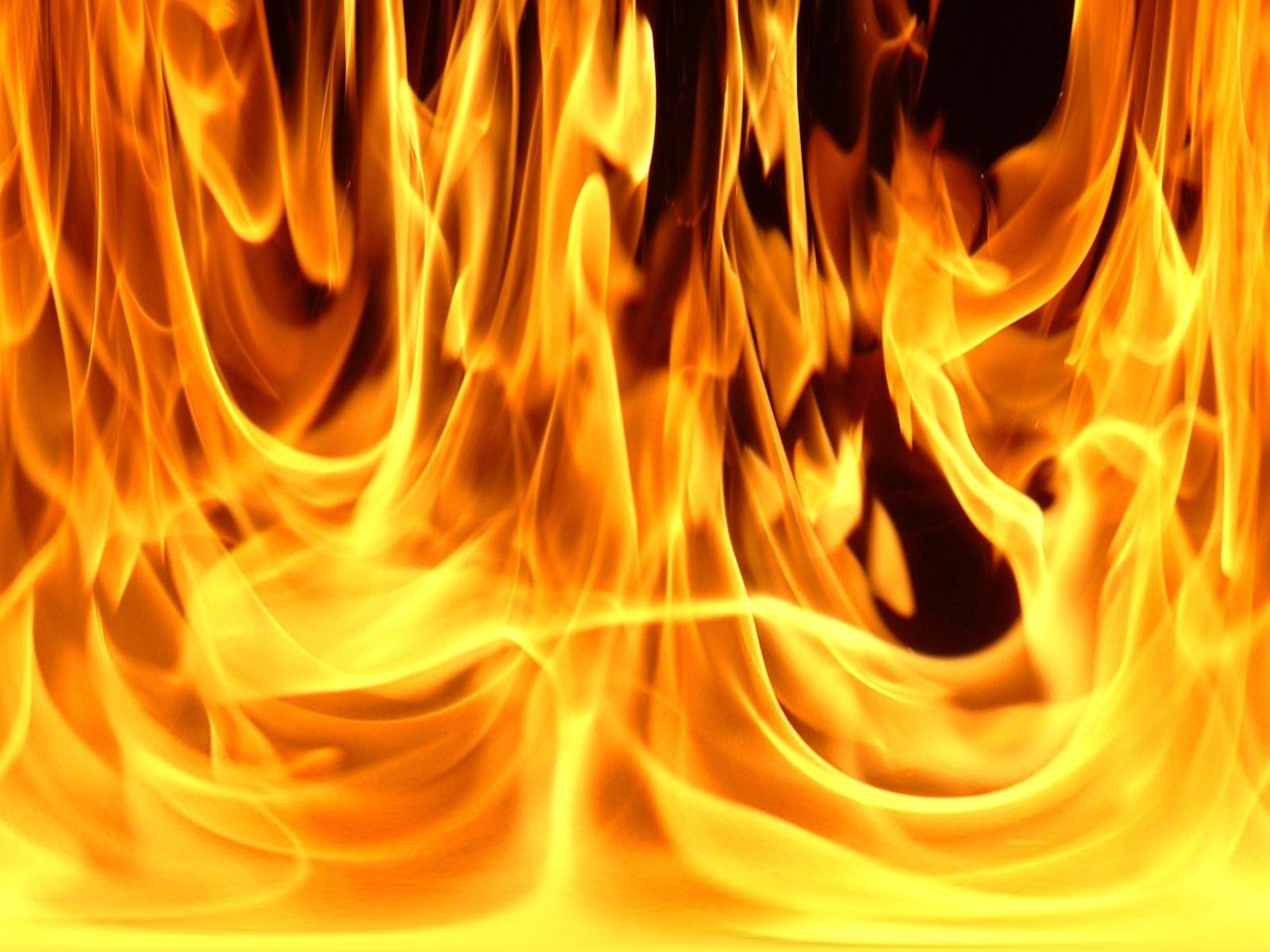
How Much Does Fire Weigh?
Question: Since fire is a plasma, and plasma is a state of matter, and matter is defined as anything that has mass, would that then mean that fire has mass and weight to it? If so, is there a way to measure its weight? How much space would, say, a pound of fire take up?
Answer: It weighs more than nothing, but if you’re at the bottom of a pillar of fire, being crushed should be your second concern
Fires, putting aside details about plasma and chemicals or whatever, is just hot air. For a given pressure the ideal gas law says that the density of a gas is inversely proportional to temperature, in Kelvin. You can use this fact, the temperature and density of air (300°K 1.3 kg/m3), and the temperature of your average run-of-the-mill open flame (about 1300°K) to find the density of fire. For most “everyday” fires, the density of the gas in the flame will be about 1/4 the density of air. So, since air (at sea level) weighs about 1.3 kg per cubic meter (1.3 grams per liter), fire weighs about 0.3 kg per cubic meter.
One pound of ordinary fire, here on Earth near sea level, would take up a cube about 1.2 meters to a side. The reason that fires always flow upward is that its density is lower than air. So, fire rises in air for the same reason that bubbles rise in water: it’s buoyant. Enterprising individuals sometimes even take advantage of that fact.
If you were on a planet with no air at all, fire would fall to the ground instead of rise because, like all matter, it’s pulled by gravity. Also, it would be hard to keep the fire going (what with there being no air).

No comments:
Post a Comment